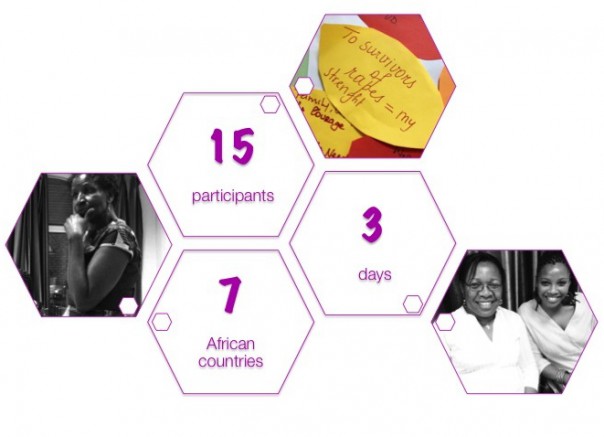In our work on HIV/AIDS, on violence and violation, legal justice and physical and mental health, the ‘doing’ takes precedence- be it in the form of life saving services, advocacy to challenge and change society, or training to build new skills and organisations. However all action is guided by concepts– theories of change, principles that frame our choices, and critiques that inspire new practice. Allowing space and time to engage the thinking behind our work as practitioner-activists is therefore vital if we are to improve practice and achieve our goals around creating healthier, violence-free societies.
From 22 to 24 September 2014, AIR held its first convening on (Re)conceptualizing Trauma in Kigali, Rwanda. The idea was to allow African practitioner-activists a space to think, to engage in the concepts underlying our work around violence against women and girls, HIV/AIDS, emotional wellbeing and mental health. It was a space to consider whether some of the methods are failing because they are built on concepts that do not match the contextual realities of the people we work for and with, and an opportunity to share our innovations in thinking and practice across disciplines and sectors.
As set out in the agenda, the convening offered a chance to:
- Interrogate some of the key theoretical concepts underlying work on trauma in relation to VAWG and HIV/AIDS (including in contexts of armed conflict, civil unrest and extreme social and economic marginalisation) and share alternative frameworks as a means of influencing our sector and our own work
- Outline elements of a transformative feminist approach to emotional wellbeing/ mental health in African contexts
- Share examples of practice that we can learn from and build on
- Generate knowledge and identify tools to produce that can guide AIR’s programming on (Re)coneptualising Trauma; and be shared with the sector.
- Begin to build a community of practice around (re)conceptualising trauma and transformative feminist approaches to emotional wellbeing/ mental health around VAWG and HIV/AIDS in the African region.
Among the 14 participants were clinical psychologists, organizational development specialists, counselors, researchers, doctors, documenters, policy advocates, social workers, community mobilisers and positive living activists. All are deeply engaged in and with communities seeking to address the injustices and health challenges created by armed conflict, displacement, HIV/AIDS, and the spectrum of forms of violence against women and girls.
Common questions emerged and bubbled through the three-day dialogue as people shared and analysed their work:
- What is the history of the understanding of trauma? Have we been part of defining it as African theorists and practitioners? Does it reflect contemporary realities faced by African women and girls and societies on the continent?
- Should we focus on health and justice for clients themselves? Or question the context that created the injustices that lead to their ill-health and violation? What does that mean for us as practitioners?
- Who has the ability to heal people’s mental and emotional wounds? Is it only psychologists? Who does healing ‘belong’ to?
- We understand and use the power of testimony and story in our work of human rights advocacy and in counseling? But are there also limits to stories?
- What role does building economic agency have in healing?
- How do we engage the ‘trauma’ experienced by practitioner-activists themselves? How do we incorporate emotional well-being into our work and workplaces, and build organisations that are healthy and whole?
AIR, as part of sharing our learning and questions, will be producing knowledge products from the convening to share with our broader community. Stay tuned! To begin you can read the inaugural edition of AIR Thoughts written by convening participant Mpumi Zondi of Sophiatown Community Psychological Services.
– Jessica Horn, Senior Advisor- AIR, Stephen Lewis Foundation
Follow us on Twitter @airforafrica.org for updates and links.

